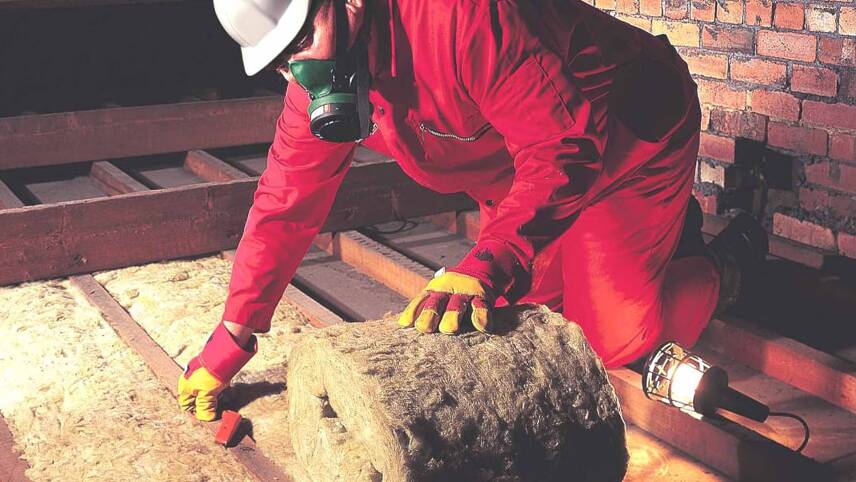This is the Sponsored paywall logged out

 At Citizens Advice we’re really keen to make sure people are at the heart of plans to reach net-zero carbon emissions, particularly when it comes to the changes we’ll have to make to homes across Great Britain. At the start of the year I was really excited when I was invited to join the advisory group for the Citizens Assembly on Climate Change. It was commissioned by six parliamentary select committees and has the potential to create real lasting change.
At Citizens Advice we’re really keen to make sure people are at the heart of plans to reach net-zero carbon emissions, particularly when it comes to the changes we’ll have to make to homes across Great Britain. At the start of the year I was really excited when I was invited to join the advisory group for the Citizens Assembly on Climate Change. It was commissioned by six parliamentary select committees and has the potential to create real lasting change.
The brilliant thing about Citizens Assemblies is the opportunity to hear the voices of people from all walks of life. Assemblies involve a representative group of people who are selected at random from the population. This group is given information and evidence from a range of experts; crucially, they get the facts but also hear different points of view and competing interests. Before making recommendations, the assembly members then take a deliberative approach, which means they have a long, careful discussion, taking on board the competing views and trade offs they have learned about.
The Citizens Assembly made its recommendations last month, and its report is well worth a read. In the section on heat and energy use in the home assembly members emphasised the need for a long-term strategy, with a wide range of actors taking steps to move the sector towards net zero.
So what? – How do we make changes and achieve some of these recommendations?
As the statutory consumer champion for energy, here at Citizens Advice we want to see future programmes and schemes that improve the efficiency of homes, or encourage investments in energy efficiency and other low-carbon home technologies, have a simple consumer journey and deliver real benefits for people.
Our latest discussion paper Lessons for Net Zero brings together some of the things we have learnt over the last decade of schemes, drawing on findings from our research and the experience of our clients and advisers. We looked at various schemes and programmes, including the Energy Company Obligation, the Green Deal, the Renewable Heat Incentive, and the Feed-in Tariff.
Unsurprisingly, we found there were a number of similarities between the schemes, and that they have had mixed success. There have also been some notable policy failures that must not be replicated in future schemes.
We know people want to feel informed about their options, the Citizens Assembly has called for more information and support funded by the government (83 per cent of the assembly members agreed with this idea). We think any new schemes must have a simple customer journey. They should also use all opportunities to influence behaviour and encourage people to make choices that contribute to achieving the net-zero target. Interestingly, members of the Assembly also overwhelmingly (91 per cent) backed changes to product standards to make products more energy efficient and ‘smart’. This won’t work unless people have clear information and help to make decisions about what’s right for their homes.
We also know people want to be protected. The Citizens Assembly backed a recommendation to deliver simpler consumer protection measures by an overwhelming majority of 92 per cent. The government needs to make it clear it will take action to protect consumers from rogue traders, by demonstrating that there is regular, effective, monitoring and enforcement of standards of work.
And lastly, we know people want support – future schemes should avoid ‘boom and bust’ approaches and be in it for the long haul. These programmes should be sustainable and fair, with incentives that people will respond to. The Citizens Assembly’s recommendations included putting government help in place for poorer households.
The new Green Home Grant is a really welcome as a first step, but we’re not satisfied it has taken on board all of the learning from previous schemes. If we’re to have a truly green economic recovery from Covid-19, it’s essential investments to boost the economy also help to get the country back on track to meet its target to reach net-zero carbon emissions by 2050.
This means the government will need to do more to invest in and meet the challenges of addressing fuel poverty and achieving the net-zero target. And as we know full well from the recommendations of the Citizens Assembly, it won’t be possible without support and buy-in from people across the country.
That’s why we’re calling on the government to introduce a net zero homes guarantee to inform, protect and support people to make the changes needed to make homes efficient and switch to low-carbon heat.
The focus on a post-pandemic, green, economic recovery will need new skills, jobs and actions. If we get it right, it could lead to both homes that take much less energy to keep warm, and help to keep energy affordable for all.




Please login or Register to leave a comment.